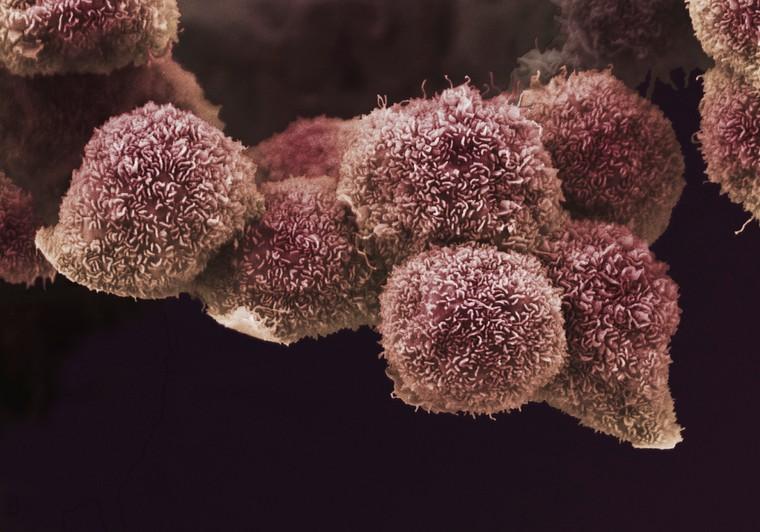Tackling tumour scar tissue could be key to treating pancreatic cancer
The first study in the world to take a detailed look at scar tissue in human pancreatic cancer has revealed a range of different scar tissue types that could help clinicians predict which patients will respond best to particular treatments.
The research, led by Barts Cancer Institute, The Institute of Cancer Research, London, Beaujon University Hospital (INSERM), Paris, and Barts Health NHS Trust, could lead to tailor-made treatments, including immunotherapies, which target the powerful scar tissue wall that protects the cancer and makes it such a difficult disease to treat.
'Scar tissue is a huge barrier in treating pancreatic cancer'

Co-lead researcher Professor Hemant Kocher from our Centre for Tumour Biology and Barts Health NHS Trust, said: “We are excited to uncover new potential targets for treatment of patients with pancreatic cancer. Scar tissue is a huge barrier in treating pancreatic cancer, where it can form up to 90 per cent of the tumour volume, but it is still so poorly understood."
“Our ongoing mission is to fully understand how the scar tissue influences cancer behaviour so that we can develop more effective treatments for patients with this disease, where sadly very few are successful.”
Each year around 9,800 people in the UK are diagnosed with pancreatic cancer. Scar tissue is a particular problem in the disease, where it forms the largest proportion of tumour volume out of any type of cancer.
The intense scar tissue forms a protective wall around the cancer, hampering treatments including chemotherapy, immunotherapy and radiotherapy. This contributes to it being a particularly aggressive disease, with the lowest survival rate of all cancers – fewer than five per cent of patients survive for five years or more.
By looking at pancreatic cancer samples from 16 patients in the UK, Germany and Australia, and 50 surgically resected tumours from France, the study, published in the Journal of Pathology, now shows that there are at least four different types of scar tissue, and each may influence the cancer in a different manner.
Paving the way for the development of new treatments
Co-lead researcher Dr Anguraj Sadanandam, Team Leader in Systems and Precision Cancer Medicine at The Institute of Cancer Research, London, said: “We used complex computational analysis to look at the dense scar tissue that makes pancreatic cancer so difficult to treat."
“Identifying the four types of scar tissue in our new study will help us better understand how scar tissue and tumour cells interact in pancreatic cancer, and offers new insights into how to tackle this devastating disease."
“Our work could help pave the way for new personalised medicines, so that in future, people with pancreatic cancer could be offered those treatments most likely to work for them.”
There are early indications that one of the four types of scar tissue may be particularly attractive to immune cells – the cells that fight infections – so future work may look into whether patients with this scar tissue type could potentially benefit from immunotherapy.
Finding which type of scar tissue is predominant in a patient may indicate to clinicians which patients will do well with treatment and which will not. The work paves the way for researchers to develop new treatments which are tailor-made for a particular patient.
This pioneering work was carried out as part of Cindy Neuzillet’s PhD studies and funded by grants from the Fondation pour la Recherche Médicale (FRM), the French National Society of Gastroenterology (SNFGE), the ARCAD Foundation, and the French Pancreatic Club (CFP). The work was also supported by the NIHR Biomedical Research Centre at The Royal Marsden Hospital and the ICR and Cancer Research UK.
Category: General News, Publications

No comments yet